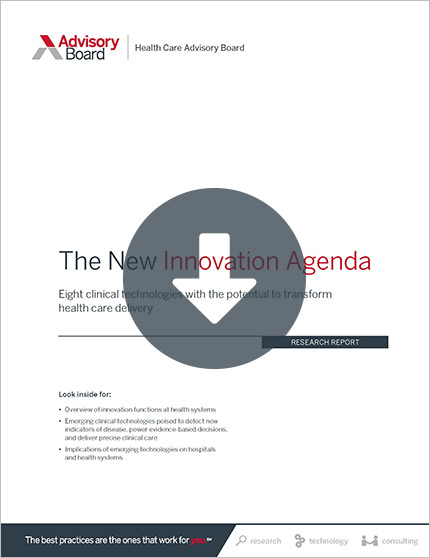Auto logout in seconds.
Continue LogoutFDA on Thursday warned providers and patients of the potential life-threatening risks of fecal microbiota transplants (FMT), after a patient who received an FMT was infected with a drug-resistant bacteria and died.
Antibiotic overuse: Health care's $20 billion problem
The rise of fecal transplants
To perform FMTs, doctors transfer fecal matter from healthy donors into a patient's bowels, either through capsules or a colonoscopy. The goal is to restore a patient's gut microbes that might have been wiped out by antibiotics. Research shows that the treatment has an 80% success rate in treating Clostridium difficile (C. diff)—a stubborn bacterial infection that affects the digestive system.
Scientists also are looking into the possibility of employing FMT to treat other conditions, such as cancer and diabetes. As the treatment has increased in popularity, FDA in 2013 announced a draft decision to regulate FMT as a drug to treat patients with C. diff who do not respond to standard therapies, but said it would need to conduct more research before deciding how to regulate the therapy. FDA has not yet finalized regulations for FMT.
FDA warns of potential FMT risks
However, FDA last week said it is now aware that patients who undergo FMT can experience severe or life-threatening bacterial infections caused by drug-resistant bacteria. FDA said two patients with weakened immune systems who received FMT developed infections stemming from extended-spectrum beta-lactamase (ESBL)-producing E. coli, which is resistant to antibiotics. FDA noted that one of those patients died.
FDA said both FMTs involved stool from the same donor. The donor's stool had not been tested for ESBL-producing gram-negative organisms before the providers conducted the transplants, according to FDA.
FDA said stored preparations of the donor's stool underwent lab tests after the two patients experienced adverse reactions, and the tests confirmed the stored stool contained ESBL-producing E. coli identical to the bacteria found in stool used in the two transplants.
As a result of the developments, FDA said it now will require FMTs to involve:
- Donor screenings with questions designed to assess the risk of colonization with drug-resistant bacteria;
- Excluding donations from individuals at a higher risk of colonizing drug-resistant multi-drug resistant organisms; and
- Lab tests for drug-resistant bacteria to identify and exclude stool with drug-resistant bacteria.
FDA said patients considering FMT should speak with their providers about the procedure's potential risks and encouraged all providers administering FMT to report any suspected adverse events to the agency.
Dale Gerding, a researcher at Veterans Affairs who serves as a consultant for several FMT trials that currently are under FDA review, said, "This case is really unfortunate. I think it reinforces the need for FDA oversight over FMT." Gerding continued, "This death is the most extreme side effect I'm aware of in the history of FMT. Moving forward, we have to clearly be sure that we're enforcing safety measures that ensure that donors are tested for potential pathogens" (Yancey-Bragg, USA Today, 6/13; FDA release, 6/13; Gever, MedPage Today, 6/13; Kounang, CNN, 6/13; Lambert, NPR, 6/14).
Need to reduce antibiotic usage? Start here.
Antibiotic-microbial organisms infect approximately two million Americans each year. CMS recently announced its plan proposing that all hospitals must have an antimicrobial stewardship program (ASP) in place by 2017 in order to participate in Medicare. Many hospitals still lack ASPs, especially smaller community hospitals where resource limitations present a major barrier.
Watch to hear case studies and tips from hospitals that have successfully implemented ASPs, despite these resource challenges. We focus specifically on three top issues: leadership and governance, intervention selection, and impact measurement. We also demonstrate how Quality Compass can help you take the first steps toward reducing antimicrobial overuse.
Don't miss out on the latest Advisory Board insights
Create your free account to access 1 resource, including the latest research and webinars.
Want access without creating an account?
You have 1 free members-only resource remaining this month.
1 free members-only resources remaining
1 free members-only resources remaining
You've reached your limit of free insights
Become a member to access all of Advisory Board's resources, events, and experts
Never miss out on the latest innovative health care content tailored to you.
Benefits include:
You've reached your limit of free insights
Become a member to access all of Advisory Board's resources, events, and experts
Never miss out on the latest innovative health care content tailored to you.
Benefits include:
This content is available through your Curated Research partnership with Advisory Board. Click on ‘view this resource’ to read the full piece
Email ask@advisory.com to learn more
Click on ‘Become a Member’ to learn about the benefits of a Full-Access partnership with Advisory Board
Never miss out on the latest innovative health care content tailored to you.
Benefits Include:
This is for members only. Learn more.
Click on ‘Become a Member’ to learn about the benefits of a Full-Access partnership with Advisory Board
Never miss out on the latest innovative health care content tailored to you.

